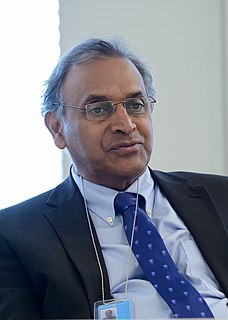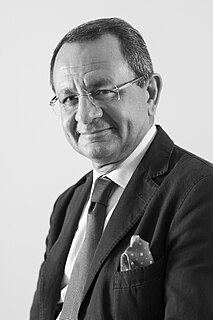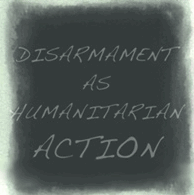Arms control is a term for international restrictions upon the development, production, stockpiling, proliferation and usage of small arms, conventional weapons, and weapons of mass destruction. Arms control is typically exercised through the use of diplomacy which seeks to impose such limitations upon consenting participants through international treaties and agreements, although it may also comprise efforts by a nation or group of nations to enforce limitations upon a non-consenting country.

The Biological Weapons Convention (BWC), or Biological and Toxin Weapons Convention (BTWC), is a disarmament treaty that effectively bans biological and toxin weapons by prohibiting their development, production, acquisition, transfer, stockpiling and use. The treaty's full name is the Convention on the Prohibition of the Development, Production and Stockpiling of Bacteriological (Biological) and Toxin Weapons and on their Destruction.

The Conference on Disarmament (CD) is a multilateral disarmament forum established by the international community to negotiate arms control and disarmament agreements based at the Palais des Nations in Geneva. The Conference meets annually in three separate sessions in Geneva.

Stockholm International Peace Research Institute (SIPRI) is an international institute based in Stockholm. It was founded in 1966 and provides data, analysis and recommendations for armed conflict, military expenditure and arms trade as well as disarmament and arms control. The research is based on open sources and is directed to decision-makers, researchers, media and the interested public.

The United Nations Institute for Disarmament Research (UNIDIR) was established in 1980 by the United Nations General Assembly to inform States and the global community on questions of international security, and to assist with disarmament efforts so as to facilitate progress toward greater security and economic and social development for all.

Jayantha Dhanapala is a Sri Lankan diplomat who serves as member of the Board of Sponsors of The Bulletin of the Atomic Scientists and was a governing board member of the Stockholm International Peace Research Institute. Dhanapala is also a distinguished member of Constitutional Council of Sri Lanka and he is the Senior Special Advisor on Foreign Relations to President Maithripala Sirisena, and was Sri Lanka's official candidate for the post of Secretary-General of the United Nations, before withdrawing from the race on 29 September 2006. From 2007 he has been the President of the Pugwash Conferences on Science and World Affairs.

Patricia Lewis is a British and Irish nuclear physicist and arms control expert, who is currently the Research Director for International Security at Chatham House. She is also currently Co-Director of the Global Commission on Internet Governance. She was previously the Senior Scientist-in-Residence and Deputy Director at the James Martin Center for Nonproliferation Studies at Monterey Institute of International Studies (MIIS). She was previously the Director of the United Nations Institute for Disarmament Research (UNIDIR) and the Director of VERTIC.
The Acronym Institute for Disarmament Diplomacy is a Non-governmental organization (NGO) founded in 1995 by Rebecca Johnson, senior advisor to the United Nations' United Nations Monitoring, Verification and Inspection Commission chaired by Hans Blix from January 2000 to June 2003. It states as its goal "to promote effective approaches to international security, disarmament and arms control. Engaging with governments and civil society, Acronym provides reporting, analysis and strategic thinking on a range of issues relevant to peace and security, with special emphasis on treaties and multilateral initiatives."

Small Arms and Light Weapons (SALW) refers in arms control protocols to two main classes of man-portable weapons.

The Disarmament Insight initiative is a collaboration between UNIDIR's project Disarmament as Humanitarian Action: Making Multilateral Negotiations Work (DHA) and the Geneva Forum.

The UN Office for Disarmament Affairs (UNODA) is an Office of the United Nations Secretariat established in January 1998 as the Department for Disarmament Affairs, part of United Nations Secretary-General Kofi Annan's plan to reform the UN as presented in his report to the General Assembly in July 1997.

Ednan Tofik oghlu Agaev is a former Soviet and Russian diplomat, professional consultant on international projects, including cross-border M&A and project financing. Currently the managing partner of the Moscow office of the international law firm ASTEY.
An explosive weapon generally uses high explosive to project blast and/or fragmentation from a point of detonation.
The United Nations Information Service at Geneva is part of a network of United Nations Information Centres across the world working to promote greater public understanding of the aims and activities of the United Nations.

Established in 2008 by Nathan Taback, Christina Willie and Robin Coupland, Insecurity Insight is a Geneva-based non-profit organisation that has developed the ”Taback-Coupland model of armed violence”, a model that is used to generate data on the impact of armed violence and insecurity on people's lives and wellbeing with a view to generating preventive policies.

The International Institute for Sustainable Development (IISD) is an independent think tank founded in 1990 working to shape and inform international policy on sustainable development governance. The institute has three offices in Canada - Winnipeg, Ottawa, and Toronto, and one office in Geneva, Switzerland. It has over 150 staff and associates working in over 30 countries.
Michael Davis is the founder of businesses and non-profit foundations supporting the resolution of political conflicts. His book Life after Democracy suggests a new relationship between political leaders and the public to reverse the global rise of violence and authoritarian controls.

Virginia Gamba de Potgieter is the Special Representative of the Secretary-General of the United Nations for Children and Armed Conflict. She was appointed 12 April 2017 by United Nations Secretary-General António Guterres as the replacement for Leila Zerrougui.

Anja Kaspersen is a senior fellow at Carnegie Council for Ethics in International Affairs. She is the former Director of the United Nations Office for Disarmament Affairs in Geneva and Deputy Secretary General of the Conference on Disarmament (UNODA). Previously, she held the role as the head of strategic engagement and new technologies at the International Committee of the Red Cross (ICRC). Prior to joining the ICRC she served as a senior director for geopolitics and international security and a member of the executive committee at the World Economic Forum.
Robin Geiss is a German academic specializing in public international law. In 2021, he was appointed by United Nations Secretary-General António Guterres as Director of the United Nations Institute for Disarmament Research. Prior to this, Geiss held various academic appointments including as Swiss Chair of International Humanitarian Law at the Geneva Academy of International Humanitarian Law and Human Rights and Director of the Glasgow Centre for International Law and Security at the University of Glasgow.













